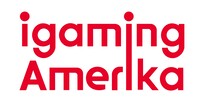
The Brazil Sports Commission (CEsp) recently raised concerns about the current regulations on betting advertising during a hearing aimed at discussing two bills that would impose further restrictions on marketing. On Wednesday, April 9, CEsp convened to address the two new bills, PL 2,985/2023 and PL 3,405/2023, prompted by worries that the existing rules established by the Secretariat of Prizes and Bets (SPA) are not adequately protecting consumers. Brazil Gambling Advertising
PL 2,985/2023, authored by Senator Styvenson Valentim, proposes a comprehensive ban on gambling advertisements across all channels and mediums by amending Article 33 of Law No 13,756/2018, which governs online betting in Brazil. In contrast, the less stringent PL 3,405/2023 aims to restrict advertising involving athletes and celebrities, as well as prohibit sports teams and influencers from promoting gambling brands.
During the meeting, Senator Carlos Portinho, the rapporteur for PL 2,985/2023, remarked that the current regulations on advertisements in Brazil have yielded “little results” in curtailing “predatory advertising.” He expressed frustration, stating, “We waited a year for [gambling] to be regulated and effectively enforced. When I hear that the government has a restrictive ordinance [on advertising], I wonder what they are doing. The situation is getting worse. Advertising is massive and is directed at people who are often not even the target audience, like children.” Brazil Gambling Advertising
The SPA rolled out its gambling regulations last year, publishing Normative Ordinance No 1,231 in July to define the advertising guidelines in Brazil. Most of these rules took effect when the legal market launched on January 1. They stipulate that all marketing should prioritize social responsibility and promote responsible gambling. Advertisements cannot present betting as “socially attractive,” and influencers and celebrities are barred from implying that gambling leads to personal, social, or financial success.
Moreover, the regulations mandate that sponsorships clearly identify the operators and avoid appealing to children. On December 6 of the previous year, the SPA introduced multiple ad restrictions intended to become effective after the legal market’s launch. These restrictions include prohibiting advertisements aimed at children or adolescents and limiting platforms that primarily cater to minors. All advertisements must display an “18+” symbol or include a message indicating that games are “prohibited for people under 18.”
During the CEsp hearing, SPA representative Daniele Correa Cardoso noted the challenges in monitoring the online sector. “When we receive a complaint, we carry out an analysis and the team proceeds to open an inspection process to remove the content [that breaches the regulations],” she explained, emphasizing the difficulty in managing compliance within the fast-paced digital environment.
Read also: New York State Gaming Commission Reports Historic Sports Betting Revenue
Questions regarding the sufficiency of current regulations were raised by Thiago Henrique Cunha Basílio, a public defender in Rio de Janeiro state, who argued that the existing rules fail to adequately protect vulnerable players. “We don’t think it’s enough to have a message saying ‘play responsibly’, as if that were washing our hands and transferring [responsibility] to the individual gambler on whether or not to bet,” he commented, highlighting the varying levels of vulnerability amongst consumers.
SuperBet Brazil CEO Alexandre Fonseca also acknowledged the risks associated with advertising but emphasized that regulators should focus more on combating the illegal market. “We have 20,000 illegal websites operating in Brazil today, which is where gambling addicts end up finding shelter, where minors end up finding fertile ground to get involved in gambling,” Fonseca stated during the commission session. “I think that today we have a much more serious problem, which is the fight against illegal betting.”
Furthermore, Pietro Cardia Lorenzoni, legal director for the National Association of Games and Lotteries (ANJL), warned that implementing further restrictions, such as those proposed in PL 2,985/2023 and PL 3,405/2023, could inadvertently push players toward the illegal market. Using Italy as a cautionary example, he stated, “Brazilian consumers still don’t know what is legal and what is illegal. Advertising is a way of informing consumers about the legal market. [In Italy] the impacts of the ban were negative. Consumers were redirected to the illegal market. This means no consumer protection, no protection for children and adolescents, and no funding for public policies.” Brazil Gambling Advertising











